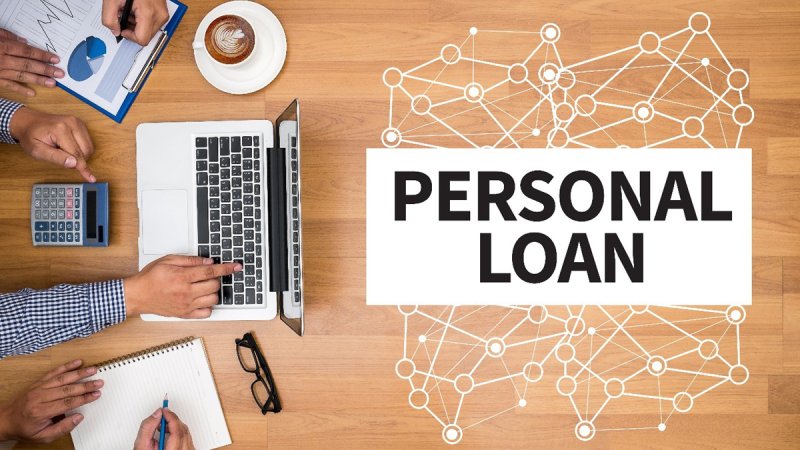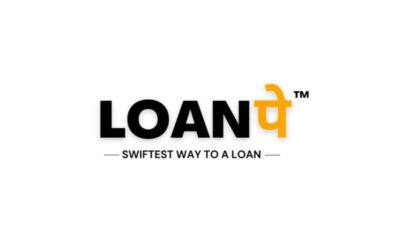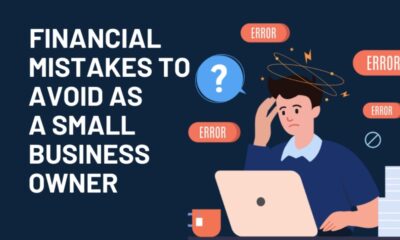Startup
Things You Should Need to Know about Personal Loans Before Applying for One

Personal loans follow a set procedure that you should be aware of to decide if they are the right financial solution for your needs. Learn about how personal loans operate before submitting an application for one. This will help you decide whether or not the type of borrowing is appropriate for your needs. This is an explanation of how they function:
Submission and authorisation
Applying for a personal loan can be started online, through a credit union, bank, or other financial institution. This usually means filling out an application and providing details about your work history, income, and preferred loan amount.
The lender will review your application and assess your creditworthiness based on several variables, including your employment history, debt-to-income ratio, and credit score. It’s possible to request more documents in addition, such as bank statements or pay stubs.
The lender will decide whether to approve or reject your loan application based on their evaluation. In addition, they might suggest a different loan amount or interest rate from what you had originally requested.
Distribution of the loan funds
A loan agreement containing the terms of the loan, including the interest rate, loan amount, repayment period, and any associated fees, will be given to you after it has been approved. The lender will release the loan amount upon your signature, usually in the form of a lump sum deposit into your bank account.
Loan repayment
When it comes to the loan, you will start making consistent monthly payments that typically include:
- Key: The original amount you took out.
- Interest: A percentage of the principal that represents the cost of borrowing the money.
Throughout the agreed-upon repayment term, you will continue to make these payments until the loan is fully settled. That being said, before applying for a personal loan for personal use, you should also think about the following.
- Origination fees: A fee charged by some lenders to cover the costs of processing your loan application.
- Prepayment: Some loans allow for early repayment without penalty, giving you the chance to pay off the debt earlier and possibly save money on interest. However, it’s important to carefully read the terms as this provision might not apply to everyone.
- Missed payments: Not only can late payments result in penalties and fees, but they can also negatively impact your credit score.
Frequently Asked Questions (FAQs)
What aspects of your eligibility for a personal loan may be affected?
Your eligibility for a personal loan may be impacted by several factors, each of which is given varying weight by lenders:
- Credit score: This is very important since it reflects your creditworthiness and history of timely repayment.
- Income and employment: Lenders take into account your income and employment stability when determining your ability to repay the loan.
- Debt-to-income ratio (DTI): This shows how much of your gross monthly income is allocated to paying off debt each month. A lower DTI increases the chances of getting approved.
- Loan amount and purpose: The requested loan amount and its intended purpose may have an impact on your eligibility.
What is the highest amount you can take out on a personal loan?
Lenders assess these factors to determine your borrowing capacity. The eligible amount is based on several factors that are unique to your financial situation. Your eligibility for a potential loan amount depends on several factors, including
- Lender’s standards: Every financial organization sets its own standards for figuring out how much money can be borrowed.
- Creditworthiness: You may be able to get a bigger loan amount if your credit score is strong.
- Income and employment stability: Having a steady job and a higher income usually makes it easier to get a bigger loan.
- Debt-to-income ratio (DTI): A lower DTI ratio makes it easier for you to borrow money.
Q. How long does it typically take to get a personal loan?
When compared to other loan categories, personal loans are usually acknowledged for their comparatively quick processing times. Lenders may vary in how long it takes to approve an application; it could take several hours or several business days.
What are the benefits of choosing a personal loan?
Taking out a personal loan has many advantages, such as:
- Quick and easy access to money: Compared to other loan kinds, personal loans usually have a faster and easier application and approval process.
- Flexible use of funds: Personal loans give you the freedom to use the money for a variety of purposes, unlike some loans that are only meant for certain uses.
- Consistent monthly payments: Fixed interest rates and terms ensure predictable monthly payments, which makes budgeting easier.
Is getting a personal loan accompanied by any disadvantages?
It’s critical to remember that personal loans may have drawbacks like
- High-interest rates: Although personal loan interest rates may be lower than credit card interest rates in some cases, they may still be higher than those of other loan options, like home loans.
- Debt load: Taking on more debt will increase your total financial load, so it’s important to borrow responsibly and with careful thought.
- Risk of excessive spending: If money is not managed responsibly, having access to a large amount of money may tempt people to overspend.
-

 Sports4 weeks ago
Sports4 weeks agoAl Ahly vs Inter Miami, 2025 FIFA Club World Cup – Preview, Prediction, Predicted Lineups and How to Watch
-
Health3 weeks ago
Back to Roots: Ayurveda Offers Natural Cure for Common Hair Woes
-

 Tech3 weeks ago
Tech3 weeks agoFrom Soil to Silicon: The Rise of Agriculture AI and Drone Innovations in 2025
-

 Startup4 weeks ago
Startup4 weeks agoHow Instagram Is Driving Global Social Media Marketing Trends
-

 Sports3 weeks ago
Sports3 weeks agoFIBA 3×3 World Cup 2025: Full Schedule, Preview, and How to Watch
-

 Science4 days ago
Science4 days agoJuly Full Moon 2025: Everything You Should Need to Know, When and Where to See Buck Moon
-

 Gadget3 weeks ago
Gadget3 weeks agoThings to Know about Samsung Galaxy S26: What’s New and What’s Next
-

 Sports4 weeks ago
Sports4 weeks agoWorld Judo Championships 2025: Full Schedule, Date, Time, Key Athletes and How to Watch

























